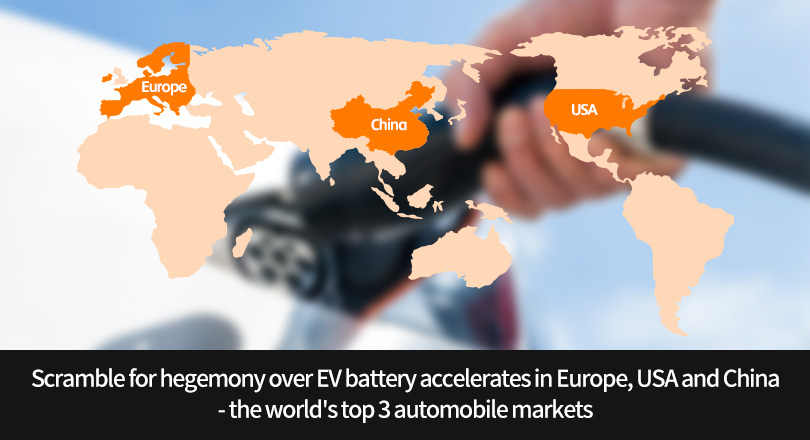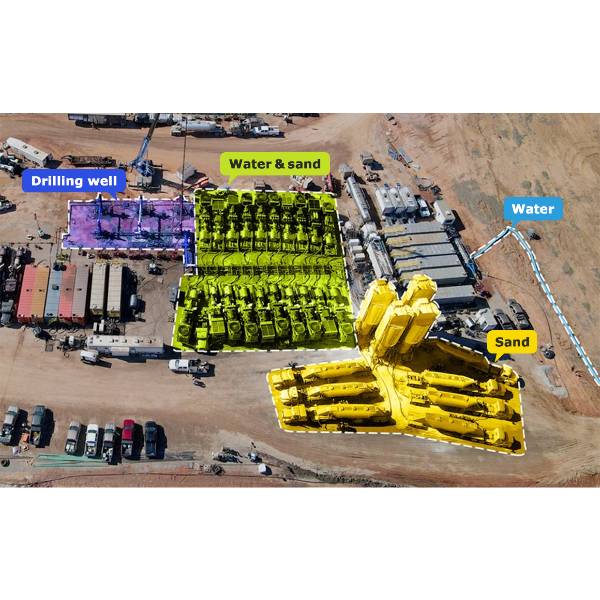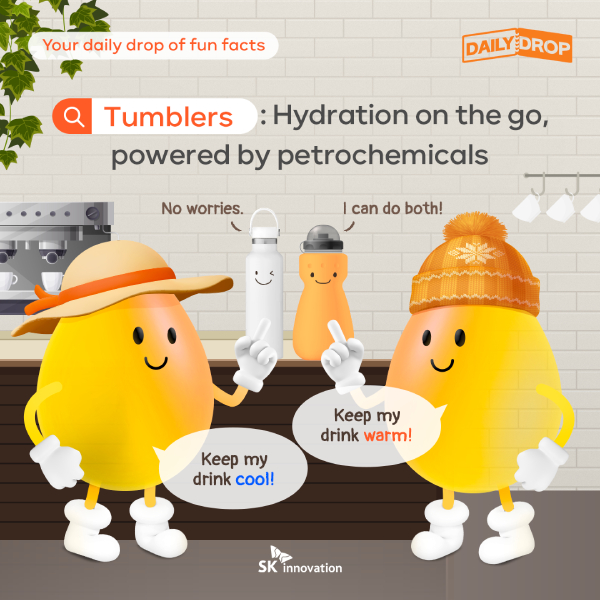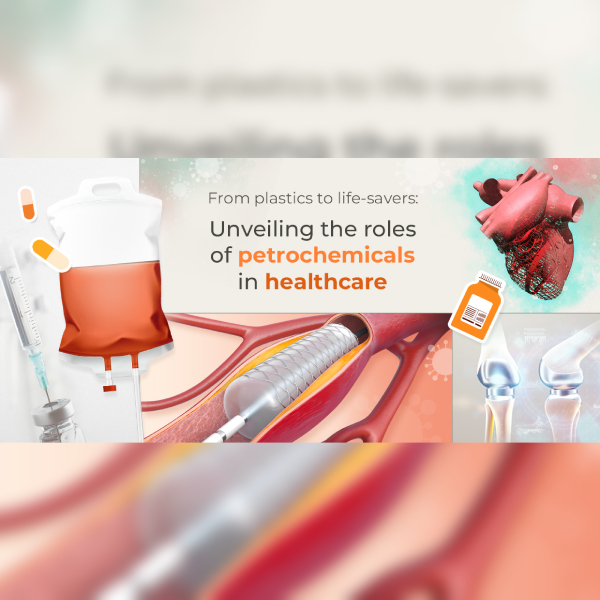 Trends & Reports
Trends & Reports
Europe, USA and China, known as the top three automobile economies of the world, are fueling up the competition to dominate the global electric car battery market, in line with the surging growth of the electric car markets. Europe and US, in particular, are racing fast to outrun Asia.
| “Europe needs a strong ecosystem for the battery industry,” said CEO of Northvolt
European startups for electric car batteries are emerging as a dark horse in the global markets. Despite the prolonged situation with COVID-19, European latecomers in electric car battery industry are expanding their investments, guided by EU’s consistent determination for powerful green policies and the major car manufacturers’ unwavering road maps to launch electric cars. The most notable is Northvolt, a Swedish startup that had received over KRW 4 trillion in funds since its establishment in 2016 by Peter Carlsson, a former executive at US Tesla Inc.
Bloomberg recently published an interview (January 22 local time) of Peter Carlsson, the CEO of Northvolt, who is striving to shift the balance of battery-making power from Asia to Europe. Peter Carlsson said, “Last year we were able to recruit almost 500 new employees, raise a lot of capital, design product plans, and more. Production of electric car batteries will begin at Skelleftea factory in Sweden at the end of 2021,” in this interview. In addition to installing equipment in the Skelleftea factory, Northvolt is also working on a large buildup of capacity for energy storage solutions.
They have already received a number of important orders. That means the company’s looking at a large expansion in Gdansk, Poland, where they assemble battery modules. At the same time, the company has a team in Germany that will build Northvolt Zwei, a joint venture with VW.
“A continued trend along the same line as 2020. You’ll also see more effects of big stimulus packages such as the EU’s green deal. That package is a lot about driving investments toward a green transition”, said Peter Carlsson. He also mentioned that the dynamics have definitely changed, from Chinese dominance with Europe paling in comparison to a situation where there is actually more investment in Europe than in China, and suggested that the biggest near-term bottleneck will be access to competence for these initiatives. Lastly, he emphasized the importance for Europe to build a strong ecosystem with everything from innovation to production and recycling.
| President Joe Biden plans to replace Government fleet with American EVs
Recently President Joe Biden announced his plans to replace government fleet with US electric vehicles, in a press conference in the White House on January 25 after he signed ‘Buy American’, an executive order obliging the preferential purchase of American goods and services. As of 2019, the government fleet of the US federal government reaches 650,000 vehicles, according to General Services Administration.
“The federal government also owns an enormous fleet of vehicles, which we’re going to replace with clean electric vehicles made right here in America, by American workers,” Biden said during a briefing Monday announcing his ‘Buy American” executive order. One of the conditions that the President proposed was that it has to be electric cars made in US with at least half American parts. He also promised to help “create 1 million new jobs in the auto sector.”
At the same time, the investments in lithium ion battery are also surging in the US. On January 26 (local time), WSJ reported that Sila Nanotechnologies, a startup that produces silicon-based battery anodes, acquired new investments worth USD 590 million (approximately KRW 650.4 billion). The company plans to spend this fund to build a production plant related with battery materials.
Another battery startup, Romeo Power, and a Canadian mining company called Lithium Americas were listed in the US stock market to secure investment funds. Regarding this investment trend, industry officials and the US congressmen are calling for lower dependence over China in order to reduce electric car and electric car battery prices and to stay competitive. Currently, China produces approximately 70% of the global lithium ion batteries, and takes high market shares in the production of related materials such as lithium and graphite.
Biden prioritized securing supply chains in the US in order to accelerate the exodus of the automobile industry from gas-powered vehicles. Regarding this, Benchmark Mineral Intelligence, a British market survey agency, forecast that the US battery production capacity will rapidly increase in the next 10 years from around 60 GWh in 2020 to 383 GWh by 2030.
| Chinese Government Extends EV Subsidies by 2 Years
Meanwhile, the Chinese government is strengthening its policies to nurture domestic EVs and EV battery industries. They raised the goal of EV proportion from 20% to 25% by 2025, and set up the goals of raising the proportion of EVs, HFCVs and PHEVs to 50% by 2035, and ban gasoline and diesel engine vehicles. To this end, they decided to not only extend the subsidies upon purchase of an electric vehicle by 2 years to 2022, but also introduced a waiver of the sales tax.
Researchers Park Seung-hye and Han Su-jin of Hana Financial Investment forecast that, “There is still a substantial gap for the EV penetration rate to reach 20% EV penetration rate, demanded by the New Energy Vehicle (NEV) Industry Development Plan (2021 – 2035), so there would still be high growth potentials for the EV market,” in a report dated January 22.
Moreover, Chinese battery makers including CATL started widening the gap with Korean counterparts, also known as K-Batterries, through aggressive investments and order placements. It is known that CATL has increased the domestic market share up to 50% by initiating battery supply to Tesla Model 3, which will be available in Chinese market from the second half of 2021.










 Youtube
Youtube Facebook
Facebook Instagram
Instagram Linkedin
Linkedin






















